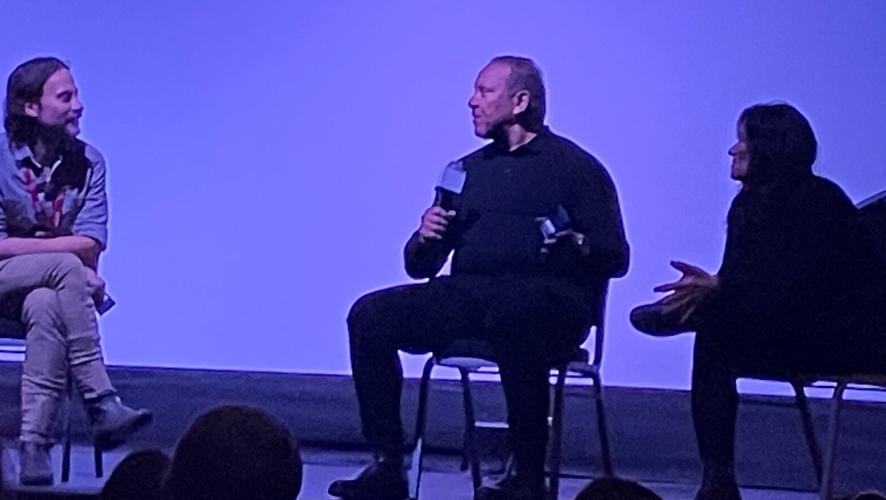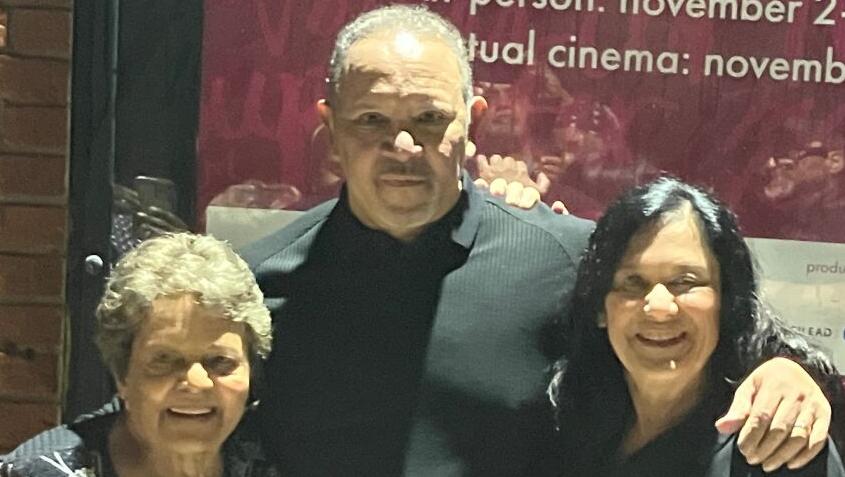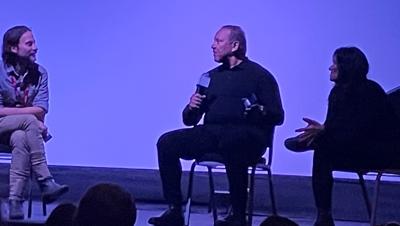Marc Morial has been around politics and community engagement since his youth in Pontchartrain Park. He's run for public office several times. He lost his first campaign (for Congress in 1990), but he won several others since.
Morial served two terms as mayor of New Orleans, from 1994-2002, but hasn't held elected office since. Still, his observations are frequently sought — and respected — by people across the political spectrum. For the last 20 years, he has served as president and CEO of the National Urban League in New York City.
After a recent screening of "Gumbo Coalition," a movie about the cross-cultural partnership of Morial, a Black civil rights advocate, and Janet Murguía, the Latina president and CEO of Unidos US, Morial went off script from talking about the movie and talked about last month's Louisiana primary results.
The movie focuses on democracy during the presidency of Donald Trump, the COVID-19 pandemic, the race-related mass shooting in El Paso, Texas, and the George Floyd murder in Minnesota.
After the screening, Morial and Oscar-winning director Barbara Koppel answered questions from a moderator and the audience. At one point, Morial figuratively took off his NUL hat and spoke as a veteran politician-turned-analyst.
He expressed deep disappointment in the outcome of Oct. 14 gubernatorial primary. He didn't mention names, but his analysis was pointed.

Marc Morial, center, stands outside Prytania Uptown theater with his mother, Sybil Morial, and Oscar-winning director Barbara Koppell, right, director of "Gumbo Coalition," a movie about the cross-cultural partnership between Morial, president and CEO of the National Urban League, and Janet Murguía, president and CEO of Unidos US.
"No one challenged," he said. "You're not going to win an election quietly. You have to bring power and force. Power and force. And in this state, forget the numbers. Where's the outrage? Where's the voice? ...If this new leadership is not going to represent all of Louisiana, people need to be vocal."
He added, "In this last election, I didn't see anybody challenge the guy who won. I didn't see anybody really challenge him, really call him out, really demonstrate that 'I have a different point of view, a different agenda.' You can't run a campaign where you're just sitting there with polls in your hands. You've got to be about what you believe in."
Morial said in campaigns the "ability to persuade people" really matters. "You give them ideas and thoughts and a narrative and a set of things that they can believe in," he said.
Clearly, Morial didn't think much of the campaign run by Shawn Wilson, the former state transportation secretary and easily the most high-profile Democrat in the race.
There are many reasons Wilson lost, but when we see that far more people voted for White Democratic state treasurer candidate Dustin Granger than for Black Democrat Wilson for governor, we can't help but assume race had something to do with it. Morial didn't say but he came close to saying Wilson couldn't win running as a Black Gov. John Bel Edwards; that didn't and wouldn't excite voters he needed.
To clarify what and who he was talking about, I asked Morial whether he was talking about Shawn Wilson as regards the governor's race. He said yes.
A number of people argue that Democratic candidates have to run more to the center and the center-right if they want a shot at winning statewide office in deep-red, Republican Louisiana. Others say the better way is to run more to the left of center to energize the Democratic base in parts of Louisiana, especially East Baton Rouge and Orleans parishes.
Morial didn't address the issue that way, but he said those candidates can't be "just becausing."
Still, Morial didn't put all of the blame on Wilson. "The state Democratic Party has been weak for a long time," he said the morning after his post-screening comments. "I think it's a collective responsibility."
The candidate is the leader of every campaign, but high-profile candidates often rely on their respective political parties to lend support — particularly with fundraising.
A lack of sufficient campaign funds has to rank among the main reasons why Shawn Wilson's campaign failed to turn up the fire enough to get into a one-on-one runoff with Gov.-elect Jeff Landry. Why that was the case deserves a deep, critical dive among Louisiana Democrats.
Morial turned the tables by asking one last question: "Who's going to fill the leadership vacuum?"
Good question. Any ideas?

















